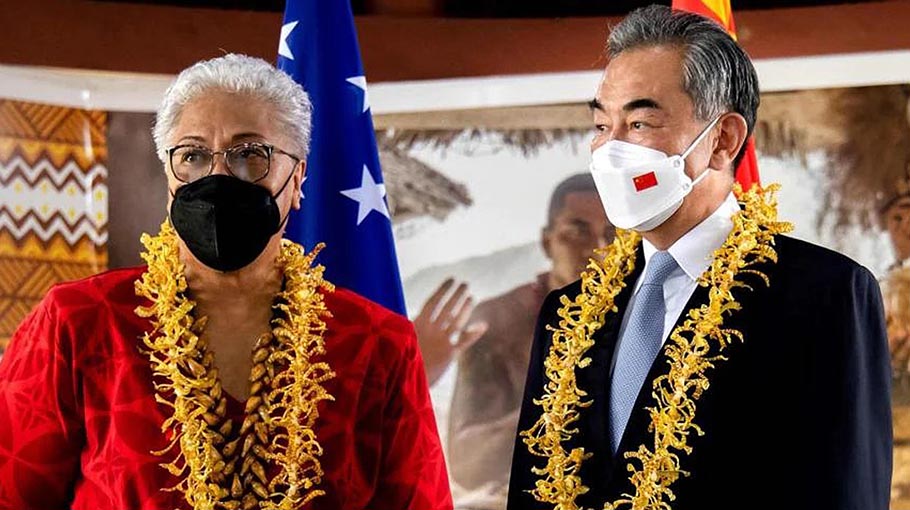Samoa signs China agreement amid South Pacific push

Samoa signed a bilateral agreement with China on Saturday (May 28), promising "greater collaboration" as Beijing's foreign minister continues a tour of the South Pacific that has sparked concern among Western allies.
The deal's details are unclear, coming midway through a Chinese delegation's eight-nation trip - but an earlier leaked draft agreement sent to several Pacific countries outlined plans to expand security and economic engagement.
The mission has prompted Western leaders to urge regional counterparts to spurn any Chinese attempt to extend its security reach across the region.
Australia’s new centre-left government has made the Pacific Islands an early diplomatic priority.
Prime Minister Anthony Albanese, sworn in on Monday, said on Saturday his Labor government’s plan includes a defence training school, support for maritime security, a boost in aid and re-engaging the region on climate change.
“We will be proactive in the region, we want to engage,” he told reporters.
A press release from the Samoan government confirmed that Chinese Foreign Minister Wang Yi and Samoan Prime Minister Fiame Naomi Mata'afa had met and discussed "climate change, the pandemic and peace and security".
Local media outlets were invited to witness the signing of a deal, but no questions were taken.
The release said that China would continue to provide infrastructural development support to various Samoan sectors and there would be a new framework for future projects "to be determined and mutually agreed".
"Samoa and the People's Republic of China will continue to pursue greater collaboration that will deliver on joint interests and commitments," the release said.
The Chinese delegation has already visited the Solomon Islands and Kiribati this week.
It arrived in Samoa on Friday night and was to depart for Fiji on Saturday afternoon, with other stops expected to be Tonga, Vanuatu, Papua New Guinea and Timor-Leste.
In a duel for influence, Australia's new Foreign Minister Penny Wong was in Fiji on Friday, seeking to woo island states after the Solomon Islands took Canberra by surprise last month by signing a wide-ranging security pact with China.
"We have expressed our concerns publicly about the security agreement," Ms Wong told reporters in the capital of Suva.
"As do other Pacific islands, we think there are consequences. We think that it's important that the security of the region be determined by the region. And historically, that has been the case. And we think that is a good thing."
At the first stop in Honiara on Thursday, Mr Wang lashed out at "smears and attacks" against the security pact already signed with the Solomon Islands.
The wide-ranging draft agreement and a five-year plan circulated to several pacific nations, both obtained by AFP, would give China a larger security footprint in a region seen as crucial to the interests of the United States and its allies.
In a stark letter to fellow Pacific leaders, Federated States of Micronesia President David Panuelo warned that the agreement seems "attractive" at first glance but would allow China to "acquire access and control of our region".




